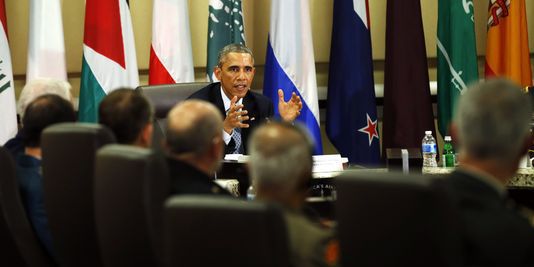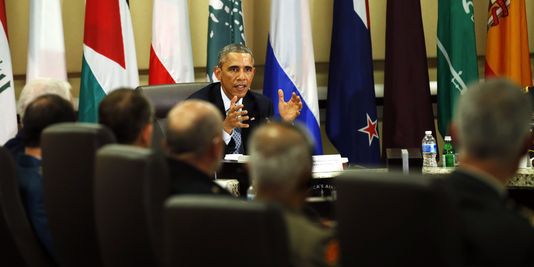
Source Reuters
Since March 2015, the Boko Haram group pledged allegiance to the Islamic State. These two movements are at the root of a big number of massacres and attacks against populations of all congregations. Boko Haram isn’t a new political nor religiously problem for Nigeria. Its development was made possible because of an agreement with certain North-East elites from Nigeria that manifested their insatisfaction regarding their increasing exclusion, especially under the two terms of president Jonathan Goodluck.
This increase has been accelerated by the repression led by the police force and Nigerian army. The situation remains unchanged in spite of other countries army’s intervention in the region. The incursions of Boko Haram in the North of Cameroun, affecting the security of the Tchad’s main international supply route, constitute a real threat.
This situation isn’t completely different from the one of the Islamic State that, after being formed in 2006, grew and became the Islamic State of Iraq and Syria, controlling Iraq and Syrian territories. They claimed many attacks during the last months concerning religious attacks, destruction of historic sites, massacre of populations or yet taking people hostage and killing them.
A National and International Indispensable Cohesion
In this war against terrorism, an important number of military actions have been put in place against these two organisations. Countries such as Tchad, Cameroun, Nigeria and Niger united their military forces to end the terror brought by the jihadist group of Boko Haram. These interventions are mostly on earth, supported by aerial bombardments to help troops move forward.
Even in a context where maneuvers have a cost, these actions are supported. The USA decided to financially support these four countries, by injecting 20 billion francs CFA destined to back war efforts against Boko Haram and assure security in the region of Tchad’s lake watershed. In the continuity, nineteen African countries asked an emergency meeting to the UN Human Rights Council on the 1st of April on the violences committed in Nigeria by the islamic group Boko Haram.
The president of the Council, German Joachim Gauck, has a request made by Algeria in name of the group of African countries. The coalition and its allies have themselves deployed groups to stop the Islamic State for more than a year now. Since recently, the war against these jihadists implies new participants and additional resources.
It’s a will that the Unites States put to execution with the pentagon and the NSA in following the Islamic propaganda from ISIS and the coordination of work with other services. Italy wants as well to reinforce the war against these groups : the minister of defense, Roberta Pinotti, said that her country foresees to fight the enlargement of the influence of the ISIS in North Africa and Europe. These mesures evince the will of nations to unite to fight against a terrorist movement.




























